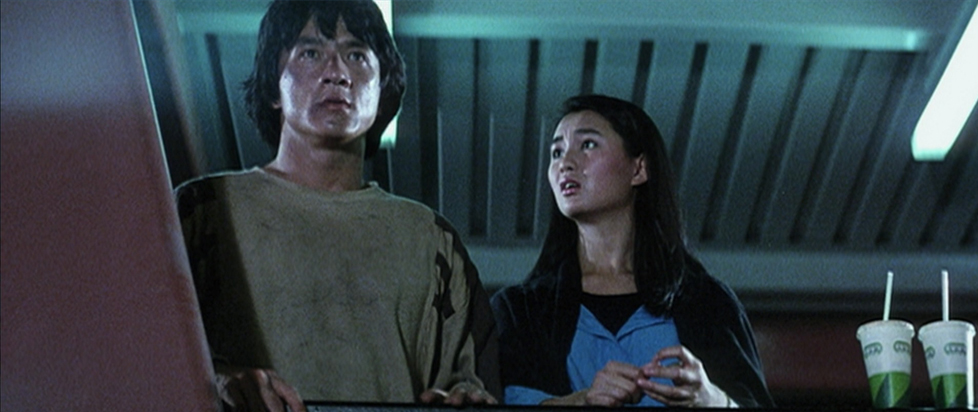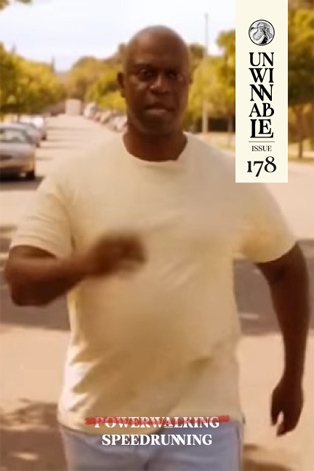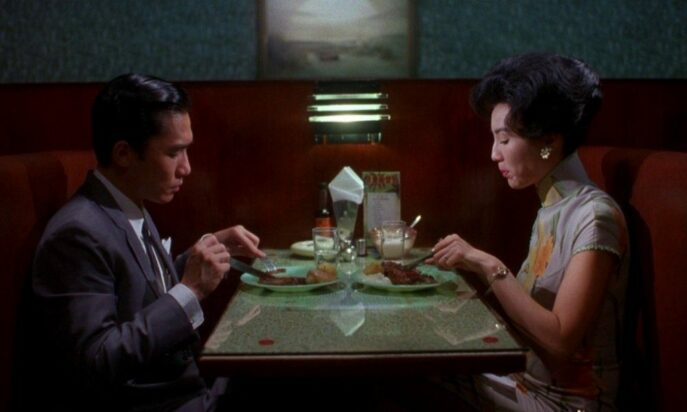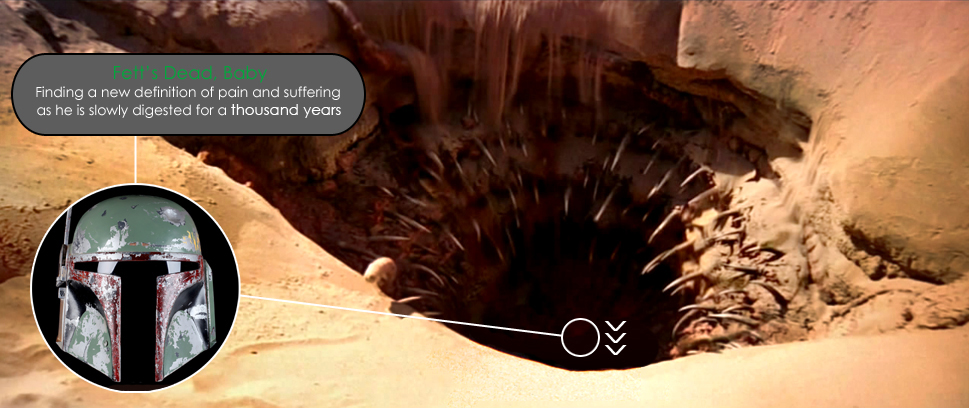
In the Mood for Action

This column is a reprint from Unwinnable Monthly #178. If you like what you see, grab the magazine for less than ten dollars, or subscribe and get all future magazines for half price.
———
Wide but shallow.
———
Our household dubbed this the Summer of Action, as we love a good theme. The inspiration included a large slice of nostalgia, specifically in search of the comfort of familiarity, playfulness, death-defiance and, in my wife’s case, the languages she grew up with and around. And what is nostalgia good for if not sharing, as my wife wanted to draw me in to a key part of her own early life, and of course I wanted to try and see these movies as she did. The world, and my wife’s uncle in particular, loved Jackie Chan, and his movies were always playing in the background during holiday gatherings, new year feasts, birthdays or just chill weekends.
Not that Chan’s work is chill or could ever be accused as such. It demands your attention, given that so many have nearly died in the execution of almost every title. The actor/director/writer/producer et cetera does not appear exhaustible, but neither does he play tough. He flies, dances, defies physics, but also bumbles, plays the oaf, gets in his own way. No one took the work more seriously than him, but he also played the buffoon, the cad and the dipshit.
But I’m a little ahead of myself on our Summer of Action, which really began with the emotional head-to-head of Wong Kar-wai’s In the Mood for Love. A film of furtive lighting and meticulous fashion, Maggie Cheung and Tony Leung are in full lockstep, exchanging glances like blows. Cheung herself commands with desire bridled only by a dedication to vows already abandoned by her husband alongside Leung’s wife, neither of which we really see. Their callous infidelity draws Cheung and Leung’s characters together but they cannot allow themselves to touch, as if that protected them from danger.

Kar-wai’s film doesn’t flirt with disaster the way Chan’s do, but the body feels the threat, the promise, the thrill all the same. Both leave you breathless, in no small part due to the work of Cheung, who plays diametrically opposed love interests in each. In the Mood for Love finds her with an impenetrable defense, impeccable in presentation and unable to bend. But in the Police Story movies she lures the viewer in as the hapless romantic partner to Chan’s communicatively stunted hotshot cop, but she gets her hits including on Chan. Beyond that connection even, both movies are occupied with duty – to one’s vows, even if the spouse is unfaithful or if the squad is caught up with political, colonial, capitalistic bureaucracy.
I was surprised by how well Police Story fit together, building around the same frame of Western buddy cop films but still rooted in Hong Kong action cinema, and Cheung is no small part of that. Chan’s the star and it’s undeniable that he carries all these films, but real creative acumen knows how to place the pieces at hand, and Police Story and Police Story 2 know that Chan plays best against others. He’s not here to deliver heart-rending monologues, get him on that helicopter, popping lights during a pole slide. Women may not automatically flock to him but glass definitely fears him, and even if we know the sugary secrets the point is to yell “oh damn” and “oof” and “Jesus!” over and over again. Cheung and Chan and so many others probably should not have survived the process of making these movies but it’s clear (particularly in the bloopers) that Cheung is game, more than capable, even if part of that capability is the rubber bones of youth.
It’s a shame that Supercop got the ’90s Western market edit, with overworked cuts and misplaced hip hop jams, all coating the third Police Story in the slightest sheen of too much seriousness. But Michelle Yeoh is a powerhouse, and while there’s an initial volley between her and Chan over a sense of authority that could be misread as simple sexual tension, that dynamic doesn’t split hairs about their equal finesse in martial combat. Going undercover carries a more immediate threat, and allows Chan and Yeoh to stretch the chemistry between them like taffy without settling into mere trope.
And really, it’s all in service to the action. Then as now, these movies feel the need to more increasingly and elaborately defy reality, and I’m glad that computers allow contemporary filmmakers to do so more safely than ever. But the thrill remains in an actors like Cheung, Chan, and Yeoh, laying it all out for the take.
* * *
Big thanks to Caroline Rubeck for this idea and bouncing ideas back and forth! <3<3<3
———
Levi Rubeck is a critic and poet currently living in the Boston area. Check his links at levirubeck.com.




